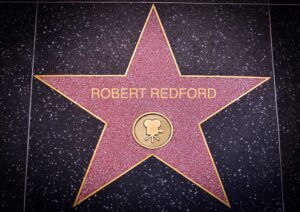The short answer: most likely no — at least not without permission.
The Right of Publicity After Death
The right of publicity protects a person’s name, likeness, nickname, pseudonym, voice, signature, and other identifying traits from being misappropriated for commercial purposes.
There is still no federal law governing publicity rights. Instead, protection is determined at the state level, and rules vary dramatically:
- Indiana: 100 years after death.
- California: 70 years postmortem (most Hollywood celebrities fall here).
- Illinois: 50 years.
- Florida: 40 years.
- New York: only since 2021, with limited postmortem rights, especially for performers and digital replicas.
This makes the celebrity’s state of residence at the time of death crucial when determining whether their estate controls the commercial use of their image.
Recent High-Profile Examples (2024–2025)
- Matthew Perry (d. 2023, California) – Protected for 70 years under California law. Any AI voice, hologram, or merchandise must be licensed through his estate.

- Tina Turner (d. 2023, Switzerland/California connections) – Complex jurisdictional issues: her estate is pursuing protections in both Europe and the U.S.
- O.J. Simpson (d. 2024, Nevada) – Nevada has no postmortem publicity statute, making commercial use of his likeness less restricted than in California or Indiana.
- Tony Bennett (d. 2023, New York) – His estate can now prevent unauthorized AI reproductions of his likeness or voice thanks to New York’s updated law.
These examples show how the legal landscape can shift dramatically based on where the celebrity lived or was domiciled at death.
Federal Developments: The No Fakes Act
In 2024, Congress introduced the No Fakes Act, a bipartisan proposal aimed at tackling the rise of AI-generated “deepfakes” of celebrities, musicians, and influencers.
- It would give both living and deceased individuals control over the commercial use of their voice, image, and likeness in digital replicas.
- Estates could take action against unauthorized AI versions of a star, even if state law would not normally protect them.
- While not yet passed, the bill reflects growing momentum toward federal-level protection, which could eventually replace the current patchwork of state laws.
If enacted, it could prevent scenarios like an AI-generated “new album” from a late artist (without estate approval) or a hologram performance used for profit without consent.
What If You Want to Use a Celebrity’s Image?
If the celebrity died in a state that recognizes postmortem rights — or if federal law is enacted — you should:
- Obtain a license from the estate (or whoever controls those rights).
- Avoid misleading implications — even in states without protection, unauthorized use could lead to claims of false endorsement or unfair competition.
- Check for trademarks — estates often register names, phrases, or likenesses (e.g., “Elvis,” “Marilyn Monroe”) as trademarks. Unlike publicity rights, trademarks can last indefinitely if renewed and used in commerce.
The Bottom Line in 2025
Between state law protections, trademark strategies, and the proposed No Fakes Act, using the image, name, or voice of a dead celebrity has never been riskier without proper legal clearance.
If you’re considering using a deceased celebrity’s likeness in merchandise, advertising, or creative projects, assume you’ll need permission — and possibly multiple layers of it.
I’ve helped many businesses navigate these issues, from licensing agreements with estates to registering trademarks that preserve long-term rights. If you’re exploring this gray area, I can help protect your brand — and keep you out of legal trouble.


